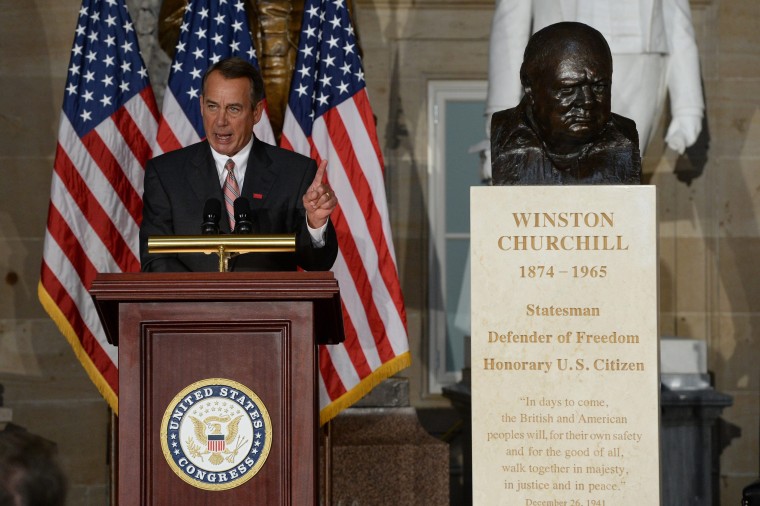The widely held assumption is that a variety of popular measures can pass the Senate and earn President Obama's signature, but won't become law because of the Republican-led House. And in plenty of instances, that's true.
But on a variety of important proposals, the problem isn't the House majority party, but rather, the willingness of the House GOP leadership to let the chamber vote up or down on the bills in question. The obstacle, in other words, isn't 218 "no" votes; it's House Speaker John Boehner's disinclination to let the House exercise its will.
I can appreciate why the Speaker would rather kill popular bills than pass them -- he promised his right-wing members he'd honor the manufactured "Hastert Rule," and Boehner's afraid of being deposed -- but as Brian Beutler noted yesterday, the posture may well carry electoral consequences.
Big Senate bills in and of themselves won't shake House Republicans out of their paralysis. It's unrealistic to expect the House will address all of these issues and it's possible they won't address any of them. But the constituent groups to whom these issues matter -- Latinos, the LGBT community, women and African Americans -- won't be confused about who killed them. The flip side of the GOP becoming a whites-only party and crossing its fingers that Healthcare.gov fails is that Boehner is doing his damnedest to help Democrats receive their 2008 and 2012 coalitions in the coming midterm.
Remember, one of the key Democratic hopes going into the 2014 midterms -- now 364 days away -- is that congressional Republicans will motivate the Democratic base to show up for a change in a midterm cycle. How's that going so far?
Swimmingly. Democratic candidates and campaign committees now intend to go to Latino communities and say, "Like immigration reform? Then help vote out the Republicans who killed the bipartisan reform package." Dems intend to go to LGBT communities and say, "Like ENDA? Then help vote out the Republicans who killed the bipartisan bill." Dems intend to go to African-American communities and say, "Like voting rights? Then help vote out the Republicans who made it impossible to reform the Voting Rights Act."
And Dems intend to go to everyone and say, "Like the government shutdown and series of self-imposed crises? If not, then help vote out the Republicans who cooked up these schemes."
The Democratic coalition is stable, but not unbreakable. By refusing to govern, Boehner and House Republicans are strengthening that coalition, boosting Democratic fundraising, helping Democratic recruiting efforts, and motivating the Democratic base.
